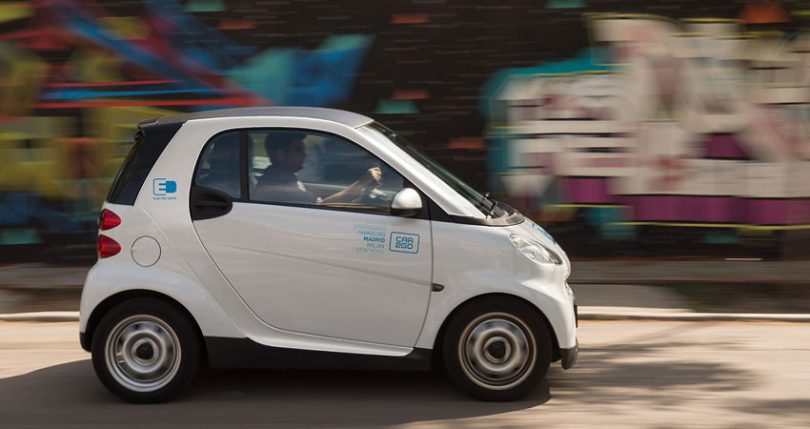Daimler and BBVA are interested in tokenization for their business, so they’ve started experimenting in a low-risk manner by creating blockchain tokens for staff to use.
BBVA recently issued a press release about a separate project, their blockchain syndicated loan. It included the following statement: “Beyond speed improvements, efficiency, and transparency of transactions, BBVA’s CEO stated that blockchain’s true potential lies in its ability to lead to a decentralized and tokenized economy.”
There are a lot of question marks about whether decentralization is working in the public blockchain space. That’s outside the scope of this article.
On the other hand, the promise of tokenization is evidenced by the $5.7billion invested in ICOs in 2017 according to Fabric VC. That doesn’t include the $5.7 billion raised this year by just two ICOs: EOS and Telegram. Many ICOs are dubious, and some are securities. But once public blockchains resolve their scaling issues and secure, user-friendly wallets become available, tokenization will go mainstream.
While there are many kinds of tokens, they are all digital representations of assets. In some cases that’s a security (many ICOs), in others that might be money (Bitcoin), or it could be as simple as reward points.
The purpose of reward points is to provide incentives for customers. Which neatly fits in with one definition of tokenomics: to try to align economic incentives between different parties. And that’s the application that’s most relevant for the Daimler and BBVA examples.
Daimler
From February to May Daimler ran a Mobility Coin program with 500 Daimler employees. The project was a token-based rewards system to encourage environmentally friendly driving.
There’s already functionality in a Mercedes that tells you how environmentally friendly you’re driving. Mercedes Me enables the car to be integrated with apps. So a special app was created that converted the ‘green’ kilometers to tokens. But the app also provided a list of employees and their scores resulting in some internal competition and gamification.
The tokens could be exchanged for a fixed set of rewards, for example, access to Fashion Week in Berlin or donated to an ecological project. Daimler plans to extend the experiment and expand the rewards. The company owns car2go, the car-sharing short-term rental company. It also invested in FlixBus the long haul bus service. They’re likely to add access to these services as future rewards.
At the recent Blockchain Summit in London, Ledger Insights spoke to Daimler’s Corinna Hofmann. As with many blockchain projects, it’s not just a matter of code. To take it to the next level there’s a need to coordinate with legal and treasury.
The accounts department records everything in Fiat currency, so they need to convert tokens for company records. And if they want to add new functionality to the car, then they have to involve the Research and Development department which takes a little longer.
The project uses a private version of Ethereum.
Hofmann described the results so far as “very promising”.
Dovu
Another company at the Summit was Dovu, represented by Max Lomuscio. The startup specializes in mobility rewards and works with companies like BMW. Lomuscio gave an example of car rental which could be very relevant for Daimler’s car2go.
He described the different motivations of a car renter versus the rental company. The renter just wants to get from point A to point B. The car company wants the vehicle preserved, and in the case of a short-term rental, clean. You can encourage goal alignment by providing tokenized rewards for the renter for returning the car in good condition.
Another example he gave related to congestion. Tokens could be used to encourage drivers to take less congested routes.
These applications sound interesting, and once public blockchains are more mature, no doubt they will happen. In the meantime, there are other ways to achieve the same objectives. In the car rental case, the company could just as easily provide a discount for ‘well-behaved’ customers. For the congestion example, who wants to sit in traffic? That’s the purpose of apps like Waze.
Nonetheless, both examples are excellent demonstrations of incentive alignment.
BBVA
BBVA is active in blockchain. Apart from the corporate debt issuance, they’re also involved in a stockmarket warrant test, and they’re part of the Voltron consortium for trade finance.
The bank has been interested in tokens for a little while. But as a financial institution, they’re constrained by their regulators from holding crypto assets. That could change in future, so they found a way to experiment.
In Spain and Argentina four thousand employees have access to a BBVA Campus Wallet. BBVA provides tokens to employees to spend on training courses. The tokens have no monetary value. Employees can exchange tokens for an hour of training. However, if an employee provides training to other employees, they can also earn tokens.
This means no matter their role in the company, employees can take courses for which they otherwise would have needed an invitation. “We are living in a time of transformation when the capacity to learn will become the principal competitive advantage for any organization,” said Ricardo Forcano, BBVA’s Global Head of Talent and Culture.
At the Blockchain Summit in London, BBVA’s Carlos Kuchkovsky spoke about the project. He said they had to work out the tokenomics to find the appropriate number of tokens to put into the community. They needed to manage supply and demand to keep just enough tokens in circulation. Too many and the excess tokens would undermine the value of the training.
The project has been a success: Since February 57% of Wallet users participated in at least one class.
Kuchkovsky said: “We’re moving from testing the tokens for internal training courses to starting to use public Ethereum. It’s not an ICO, but we have our own token that lives in public Ethereum that could be combined with other tokens in the Ethereum community for example.”
Conclusion
As enterprise’s understanding of blockchain evolves and the technology matures, more interest in tokens and tokenomics are likely. There’s a whole new set of skills needed, ranging from behavioral economics such as nudge theory to game theory.
It makes a lot of sense to use employees as a low-risk pool of people for experimentation.







